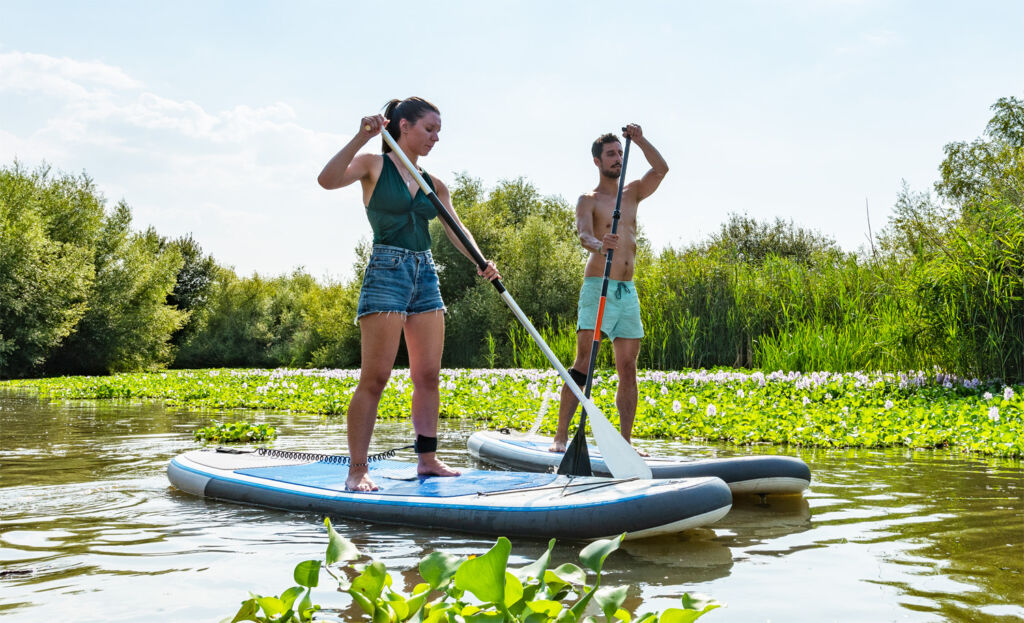
You would be forgiven for not knowing what SUP (Stand Up Paddleboarding) was a decade ago. But fast forward to today, and it’s quickly becoming a growing sport with no signs of abating.
With lockdown easing, and people eager to get on the move by booking staycations, Sabi Phagura caught up with Joe Thwaites of Loco SUP, a business that provides paddleboards in the North East of England.
Luxurious Magazine: Lockdown has been a real mixture for various companies and brands. Tell us how lockdown has been for your Stand Up Paddleboarding business?
Joe Thwaites: When the lockdown first started, I felt anxious like many others, as I didn’t qualify for any government support, being a director of a Limited company without bricks and mortar premises.
Without a crystal ball, it was impossible to know how long lockdown would last, and ‘advice’ about what constituted daily exercise was unhelpful for many sports, including Stand Up Paddleboarding.
Thankfully, as the date for restrictions loosening approached, we experienced record sales, and this trend continued for the rest of the year!
LM: What kind of customers have you been attracting since March 2020?
JT: We’ve seen many newbies coming into the sport looking for the convenience of our inflatable range alongside second purchase paddlers who started on inflatables and wanted to progress in the surf zone or race scene where a hard-board will provide performance advantages.
I attribute the influx of newbies to several factors associated with Covid, boredom, repurposing holiday funds and the socially distanced nature of paddleboarding. Generally, customers who buy Loco products are discerning shoppers who put quality and durability over price alone.
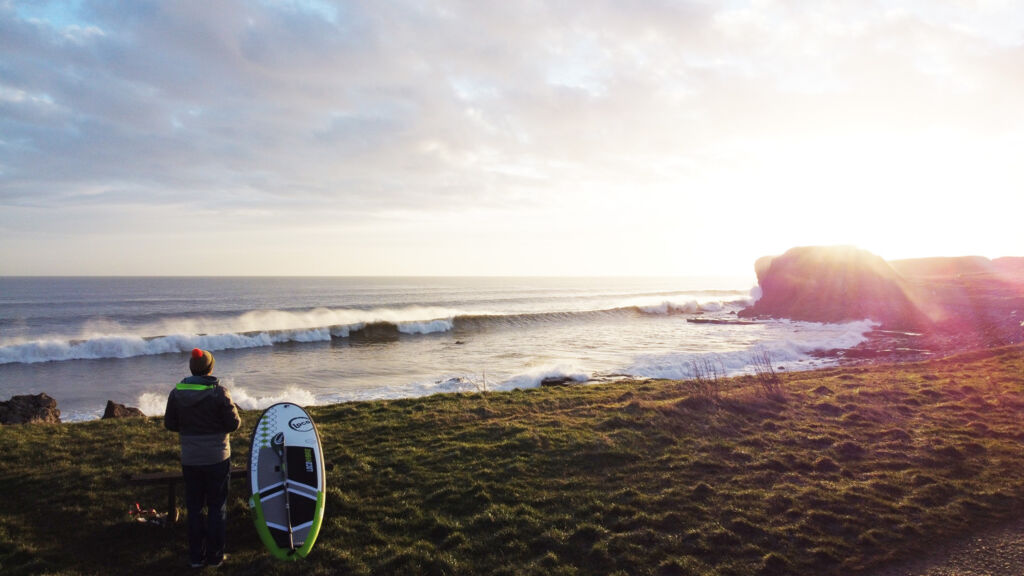
LM: Can SUP be done by anyone, or do you need special training?
JT: The great thing about SUP is its accessibility. Ninety-five per cent of people can experience success on their first session, provided it’s on flat water with limited wind. Having seen a multitude of RNLI and coastguard posts about paddle boarders being blown out to sea, I always recommend customers get a lesson to familiarise themselves with the necessary safety.
There are a host of training organisations with affiliated schools all over the country, so there is no reason for people to not establish the basics within a safe environment ahead of venturing out themselves. Obviously, if people have crossover paddle, surf or wind sports experience, it’s usually OK to self-teach with the help of YouTube videos.
LM: Why do you think SUP is popular over other water sports like windsurfing and rowing?
JT: When I started the SUP scene in the north 14 years ago, the early days represented the hard yards for us SUP pioneers. There was a lot of resistance to the sport, especially in the surf zone, with negative comments and unnecessary aggression from ‘surfers’.
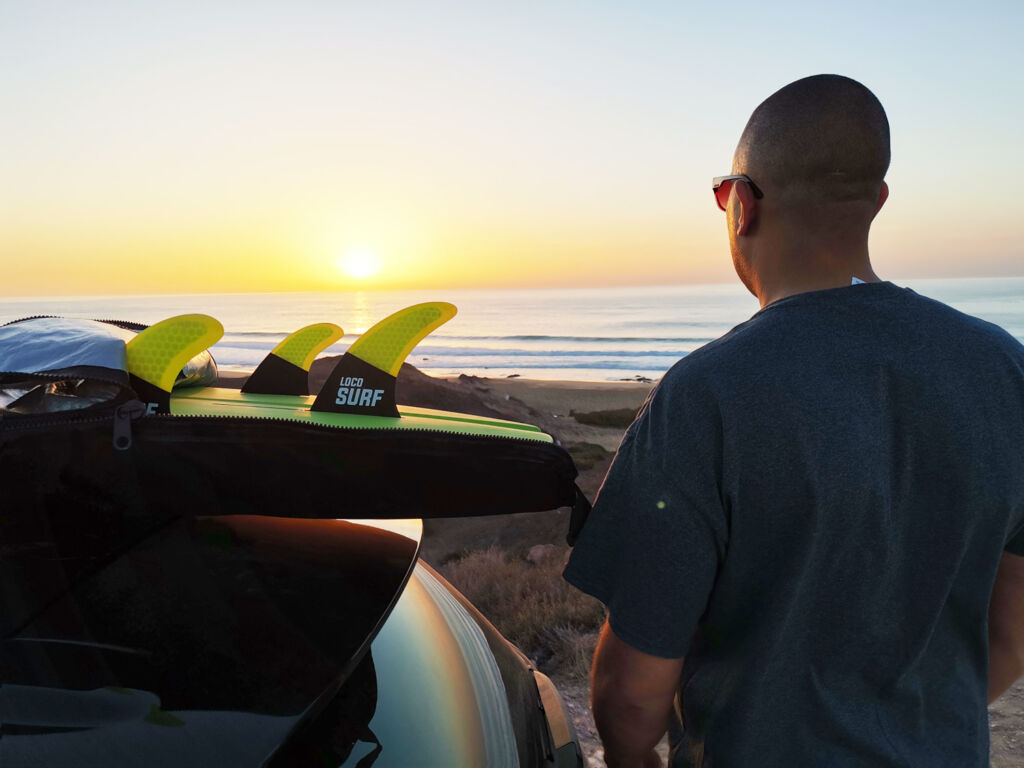
I spent a LOT of time standing next to my van waiting for lessons to materialise, but people just weren’t that bothered or didn’t get it. Fast forward a decade, and it’s everywhere, and I think once people experience standing up, it’s addictive. There are so many places to explore that you wouldn’t normally entertain. The chance of interacting with wildlife is also a big draw.
I lost count of the number of dolphins I paddled right next to last summer – they’re amazing creatures. SUP doesn’t suffer from the same elitist image as windsurfing or rowing, which I think can put many off.
It’s also less technical, and its all-in-bag go anywhere mantra seems to ring true with more people looking to explore. It’s relatively inexpensive in comparison to other water sports when you consider it can cost a few grand for a windsurf setup.
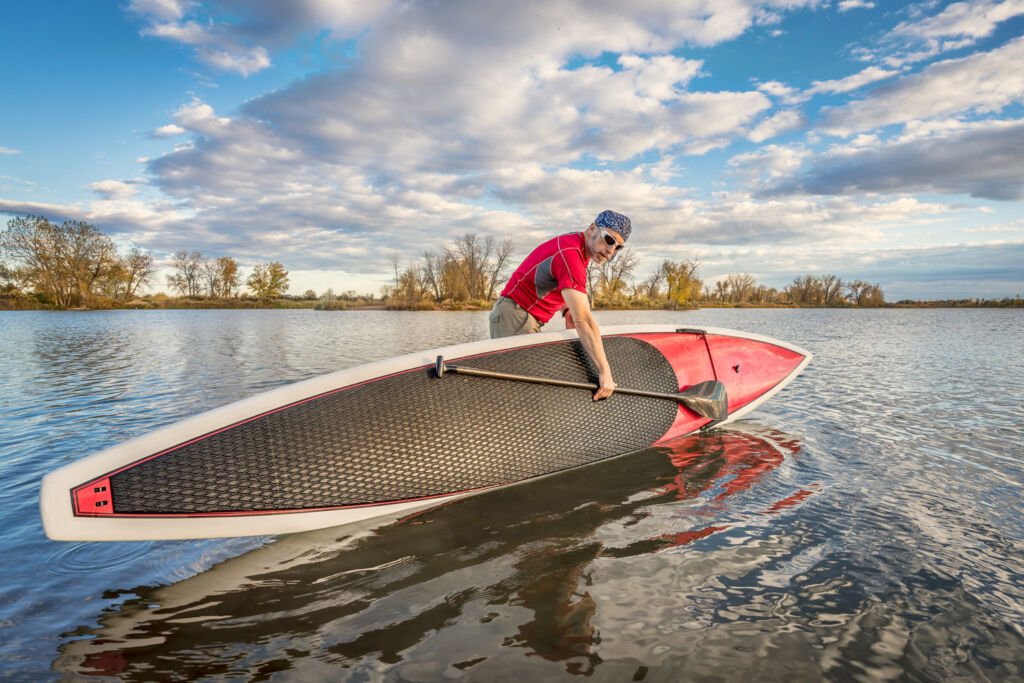
LM: Can we talk a bit about boards and the difference between inflatable and hard boards?
JT: I never use an inflatable unless I’m off the lakes, as I’m a SUP Surfer. So for me, a hard-board is an essential bit of performance kit. Inflatables are aimed firmly at beginners and those without transport or storage.
They vary massively in quality. A lot of the cheap ones are just single skin (so they’ll sink if you damage the outer PVC) or are made using cheap materials and accessories to hit a price point. You also find many of them won’t take enough PSI (pound-force per square inch) to make for a pleasant paddling experience.
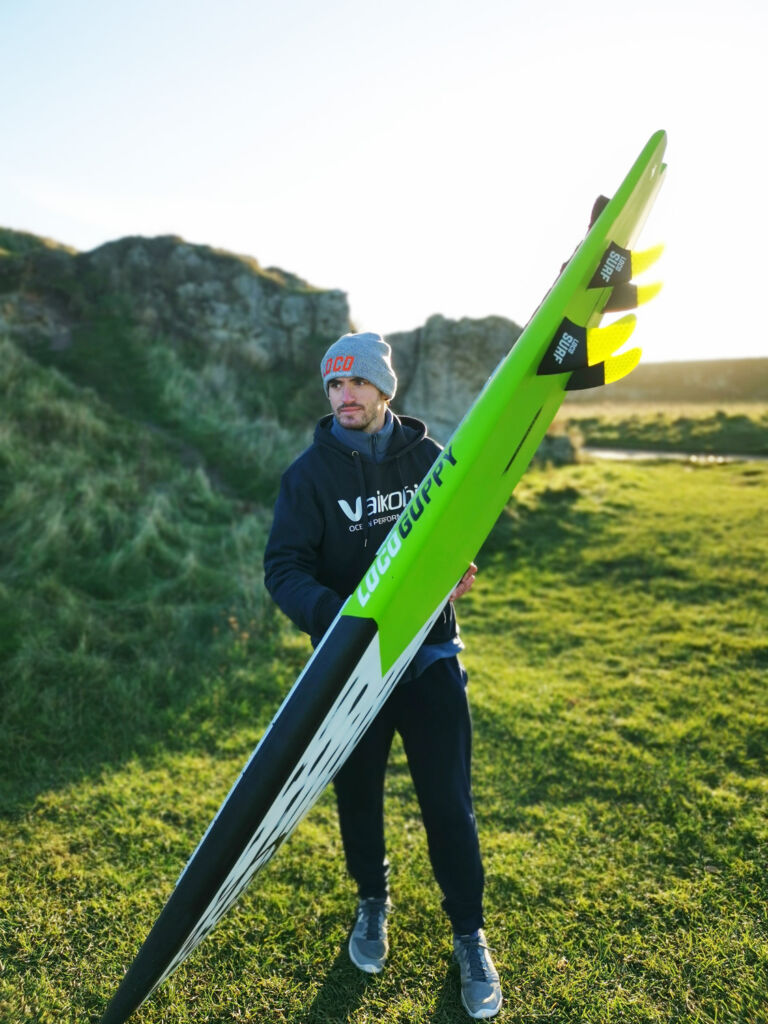 It is worth spending a bit more to get a decent iSUP package with decent accessories, which Loco can certainly help with.
It is worth spending a bit more to get a decent iSUP package with decent accessories, which Loco can certainly help with.
Hard boards are far superior to inflatables in all areas, with the exception of white water (for obvious reasons), but do cost more money.
This reflects the materials cost and the production process, which is time and labour intensive.
A hard-board will surf better, race faster, but you do need space to keep one and a way of getting one around, whether it be on the passenger seat of a hatchback for an 8’6″ surf SUP or a roof rack or a large van for a 12’6″ or 14′ race board.
Hard boards also vary massively in price, which is directly linked to materials used, process and dealer margins. Customers see real value in buying directly from Loco as the cost savings are massive for premium quality.
LM: What kind of forecast are you expecting this summer with more people opting to enjoy a staycation?
JT: We are expecting another bumper year with most people still reluctant to travel abroad because many of us are still waiting for our first vaccination. Our popular models are already sold out until more stock lands at the end of April. With pre-orders selling so fast, we’ve had to order some more stock for July.
We are feeling pretty positive about this season. For me, the challenges will start once the furlough scheme stops and foreign travel is back on the table, so I’m embracing the ‘make hay while the sun shines mindset.’ I expect there will be some tough days ahead for every business sector.
LM: What can people new to SUP expect from your training school, and how quickly can you master the sport?
JT: Much depends on the school. I’ve seen some ‘schools’ just offering taster sessions which involves them giving you the kit and letting you crack on with a few basic beach/river bank demos. People buy into the cheap price point, but for me, you’re better off paying a bit more for a proper group or 1-to-1 lesson from a school/instructor who’s been paddling for more than one season.
In terms of mastering the sport, much depends on what you mean by master? To become proficient enough to paddle by yourself on flat water without any current can take one to two lessons. To become a paddle surfing legend or top SUP racer requires putting the necessary time in. Sadly there aren’t any shortcuts, but the rewards are certainly worth it.
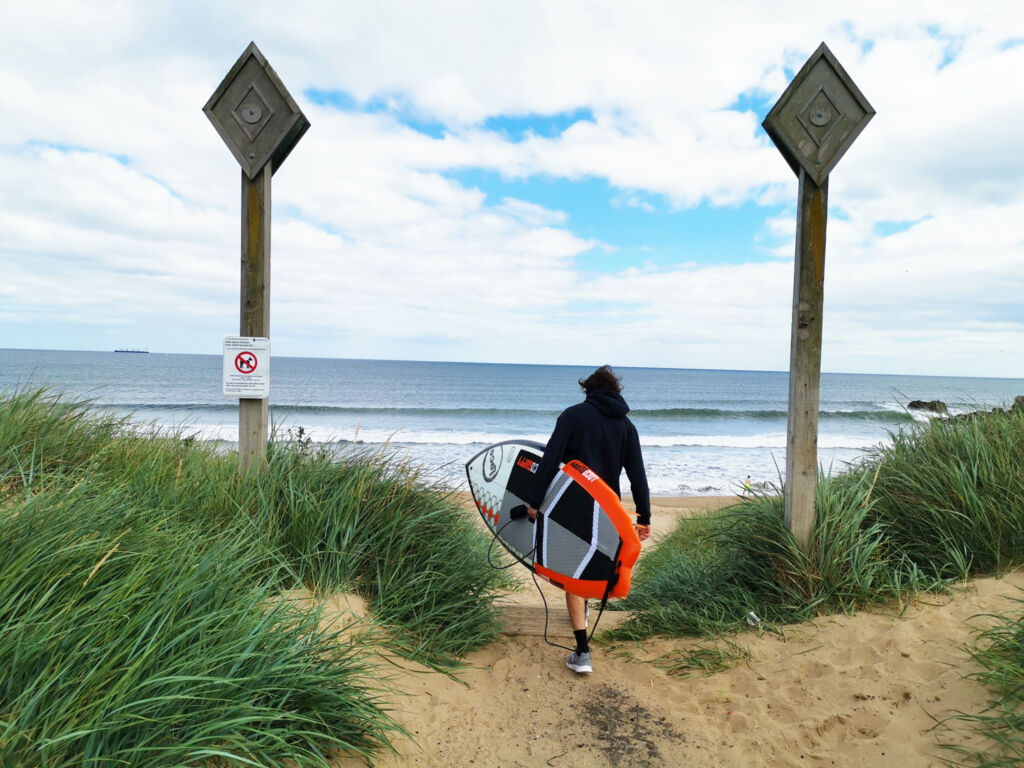
LM: What advice would you give someone wanting to take up SUP for the first time?
JT: Get a lesson; it could save your life! Invest in a decent wetsuit and buy for the colder days, not those two days of 30 degrees centigrade in July! Don’t spend all your life researching what to buy online.
The paddle is your engine, so look for a beginner’s package with a decent three per cent fibreglass or carbon paddle. If you don’t have water confidence, buy a PFD (Personal Flotation Device), but also know it makes getting back on the board harder.
Wobbly leg syndrome is commonplace, but it goes after a few sessions, so persevere, it’s just muscle memory. If you can find a club or group on social media, this is a great way of making social connections and paddling with more experienced SUP’ers while you build your skills. Operating a buddy system is a great way to stay safe too.
Loco SUP – where and How?
For more information on all types of paddleboards, or to know more about Loco SUP, visit https://locosurfing.com.
Read more exclusive interviews by Sabi Phagura here.
![]()




You must be logged in to post a comment.